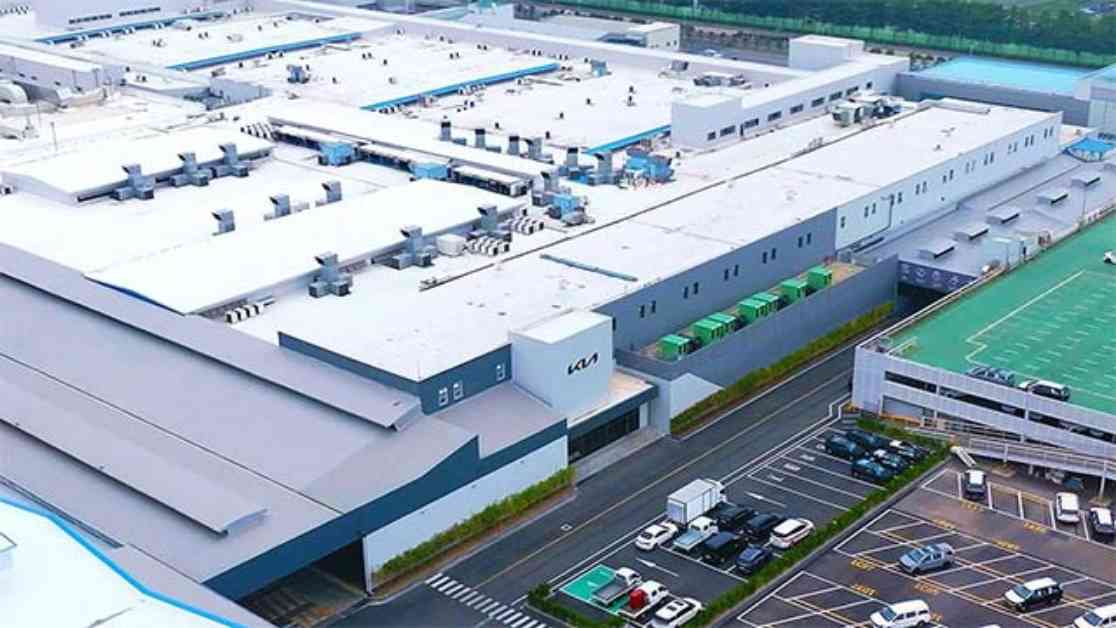Kia Corporation recently inaugurated the Kia Gwangmyeong EVO Plant, which is the first dedicated electric vehicle (EV) manufacturing facility under the Hyundai Motor Group. This new facility, located at Kia Autoland Gwangmyeong in South Korea, has an impressive annual production capacity of 150,000 units. Production at the plant kicked off with the Kia EV3 in the first half of this year, with plans to add the EV4 to the production line in the first half of 2025.
The name of the plant, ‘EVO’, is derived from the term ‘Evolution’, symbolizing Kia’s commitment to continuous improvement and advancement in the field of electric mobility. The company aims to solidify its position as a leader in the future of mobility through this state-of-the-art facility.
To effectively meet the evolving global demand for EVs, Kia has been actively preparing for EV production across its global facilities. The Gwangmyeong EVO Plant represents a significant investment totaling KRW 401.6 billion (approximately 274 million euros) and spans an area of around 60,000 square meters. This facility will play a pivotal role in the production of Kia’s popular EV models.
The transformation of the Gwangmyeong Plant 2, originally built in 1987 for the production of internal combustion engine vehicles, into the cutting-edge Kia Gwangmyeong EVO Plant showcases Kia’s forward-thinking approach to sustainable manufacturing. This facility is not only the Group’s first dedicated EV plant but also a testament to its commitment to next-generation vehicle production.
The design of the Kia Gwangmyeong EVO Plant revolves around the theme of ‘pursuing maximum change through minimal expansion’, taking into account its location in the city center and emphasizing environmental considerations such as green space preservation. The plant is equipped with eco-friendly and worker-friendly processes, ensuring a sustainable and conducive working environment.
In terms of technology, the plant boasts a high-tech logistics factory in the body shop, featuring automated guided forklifts for enhanced efficiency. The paint shop has adopted the water-based 3C1B method to enhance its green credentials, replacing the previous oil-based 3C2B method. Additionally, the introduction of new equipment aims to improve the well-being of plant employees and reduce their workload, with machinery capable of automatically installing high-voltage batteries, wheels, and tires on vehicles.
Looking ahead, Kia plans to scale up its EV production following the inauguration of the Gwangmyeong EVO Plant. Mass production of the EV3, the brand’s compact all-electric SUV, has already commenced, building on the success of the Kia EV6 and EV9 models. The company is set to introduce the EV4, a mid-sized electric sedan, in the first half of 2025.
With an annual production capacity of 150,000 units, the Gwangmyeong EVO Plant will play a crucial role in Kia’s EV production strategy, serving as a key production base for the brand’s EV models. This facility underscores Kia’s commitment to sustainability, innovation, and driving the future of electric mobility.









